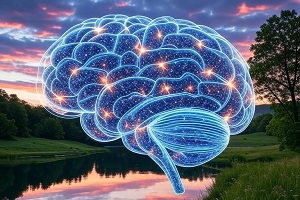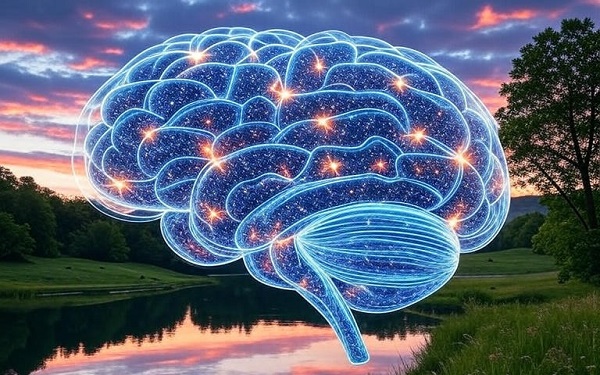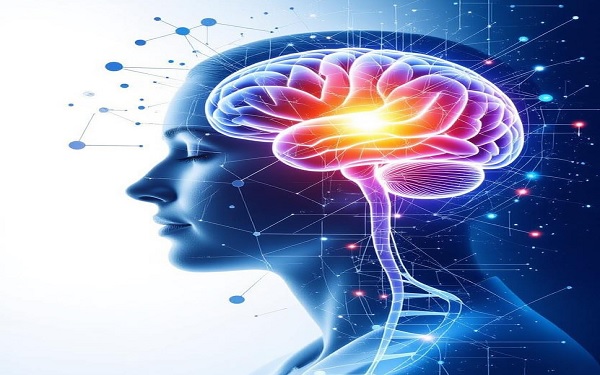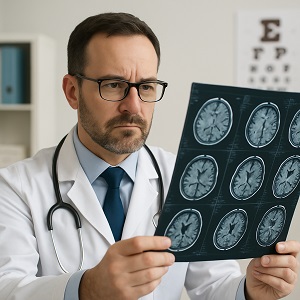What is Dementia

Dementia is not a single disease but an umbrella term for a group of conditions characterised by a decline in cognitive function severe enough to interfere with daily life. Unlike normal aging, which may involve mild forgetfulness, dementia involves significant and persistent cognitive impairment. The condition primarily affects older adults, with the risk doubling every five years after age 65, though early-onset dementia can occur in younger individuals. The Alzheimer’s Society estimates that by 2040, the UK figure could rise to 1.6 million due to an aging population, underscoring the growing public health challenge.
At its core, dementia results from damage to brain cells, disrupting their ability to communicate. This damage can stem from various diseases and injuries, leading to the diverse manifestations observed. The brain’s regions responsible for memory (hippocampus), reasoning (frontal lobe), and language (temporal lobe) are particularly vulnerable, explaining the wide range of symptoms.
While incurable, early detection and management can improve quality of life, making awareness and timely intervention critical.




Dementia is a pervasive and progressive syndrome that profoundly affects memory, thinking, behaviour, and the ability to perform everyday activities. As of 2025, it impacts well over 900,000 people in the UK alone, with global figures exceeding 55 million, according to the World Health Organization (WHO).
Dementia Hub explores the nature of dementia, its causes, types, symptoms, diagnosis, progression, impact on individuals and society, current treatments, ongoing research, and the role of support systems. It aims to provide a detailed yet accessible understanding for individuals, families, and caregivers, reflecting the latest insights and challenges as of mid-2025.
Dementia Causes and Risk Factors

Dementia arises from multiple underlying causes, each with distinct pathological processes. The most common cause is Alzheimer’s disease, accounting for 60-70% of cases, characterized by amyloid plaques and tau tangles that disrupts neuron function. Vascular dementia, the second most prevalent, results from reduced blood flow to the brain, this often due to strokes or small vessel disease.
Other types include Lewy body dementia, linked to abnormal protein deposits, and frontotemporal dementia, affecting personality and behaviour due to frontal lobe degeneration.


Risk factors are broadly categorized into non-modifiable and modifiable. Age is the strongest non-modifiable factor, with a notable increase in case numbers rising sharply after 65. Genetics also play a role, with mutations in genes like APOE-e4 increasing Alzheimer’s risk. Modifiable and potentially controllable factors include cardiovascular health - high blood pressure, diabetes, and smoking elevate risk - along with lifestyle factors like poor diet, lack of exercise, and limited social engagement.
A 2020 Lancet Commission report identified 12 modifiable risk factors, suggesting that up to 40% of cases might be preventable through lifestyle changes, offering a hopeful avenue for prevention.
Types of Dementia
Alzheimer’s Disease: The most common type, marked by memory loss as an early symptom, progressing to disorientation and language difficulties. It accounts for the majority of diagnoses, with symptoms worsening over 5-10 years.
Vascular Dementia: Often follows a stroke, with symptoms like slowed thinking and poor concentration. It may progress in steps rather than steadily, depending on further vascular events.
Lewy Body Dementia: Caused by Lewy bodies (alpha-synuclein protein clumps), it features visual hallucinations, movement issues, and fluctuating cognition, overlapping with Parkinson’s disease.
Frontotemporal Dementia: Affects younger individuals (40-65), with early changes in behaviour, personality, or language due to frontal and temporal lobe damage.
Mixed Dementia: A combination of types, often Alzheimer’s and vascular, is common in older adults, complicating diagnosis and treatment.
Rare forms: Such as Creutzfeldt-Jakob disease and posterior cortical atrophy, also contribute to the dementia spectrum, each with unique challenges.
Understanding these types aids in tailoring support and anticipating symptom trajectories.
Symptoms and Progression
Dementia symptoms vary by type and stage but generally include memory loss, difficulty with problem-solving, confusion, and changes in mood or behaviour. Early signs might be subtle, such as forgetting recent events or misplacing items, often dismissed as aging. As it progresses, individuals may struggle with language, recognise familiar faces, or manage finances, leading to dependency.
Progression typically unfolds in three stages:
- Early Stages: Mild cognitive impairment, where individuals can still function independently but notice memory lapses.
- Middle Stages: Increased confusion, need for assistance with daily tasks, and behavioural changes like agitation or withdrawal.
- Late Stages: Severe memory loss, loss of physical abilities (e.g., walking, swallowing), and full dependence on caregivers, often lasting years.
The timeline varies, with Alzheimer’s averaging 8-10 years post-diagnosis, though this depends on age, health, and care quality. Behavioural symptoms, such as aggression or depression, can emerge, requiring sensitive management.
Dementia Diagnosis

Diagnosing dementia involves a multi-step process, starting with a GP visit where memory concerns are raised. The GP may conduct initial tests, like the Mini-Mental State Examination (MMSE), assessing orientation, memory, and attention. If dementia is suspected, referral to a specialist—neurologist, psychiatrist, or memory clinic—is made.
Specialists use cognitive tests, blood screens to rule out reversible causes (e.g., vitamin B12 deficiency), and brain imaging (MRI, CT) to identify atrophy or vascular damage. Biomarkers, such as amyloid PET scans, are increasingly used for Alzheimer’s confirmation, though availability is limited in the UK’s NHS.
Diagnosis can be challenging due to overlapping symptoms with depression or normal aging. Early detection is vital, as it allows for planning (e.g., power of attorney) and access to interventions like cognitive therapy. As of 2025, NHS England aims for 66.7% of dementia cases to be diagnosed, up from 64.1% in 2023, reflecting ongoing efforts to improve access.



Individual and Societal Impacts
Dementia’s impact is profound, affecting not just patients but families and communities. Individuals face loss of independence, identity, and relationships, often leading to social isolation. Carers, numbering over 700,000 in the UK, report high stress levels, with 90% experiencing a crisis point, per Dementia Carers Count. The emotional toll is compounded by financial strain, as unpaid care costs £14 billion annually, according to the Alzheimer’s Society.
Societally, dementia burdens the healthcare system, with NHS spending £4.3 billion yearly. The economic cost, including lost productivity and social care, reaches £34 billion, per the 2023 Dementia UK report. This strain highlights the need for prevention and support, with charities playing a key role in bridging gaps.
Current Treatments and Management
There is no cure for most dementias, but treatments can manage symptoms and slow progression. For Alzheimer’s, cholinesterase inhibitors (e.g., donepezil) and memantine address cognitive decline, though efficacy varies. Vascular dementia benefits from controlling blood pressure and cholesterol with medications like statins.
Non-drug approaches, including cognitive stimulation therapy and physical exercise, improve quality of life. Behavioral symptoms may be managed with antidepressants or antipsychotics, though these carry risks like sedation.
Care strategies involve creating a safe environment, using reminders, and maintaining routines. Palliative care becomes critical in late stages, focusing on comfort. A 2024 NICE guideline update emphasizes personalized care plans, integrating these treatments effectively.
Ongoing Research and Future Hope

Research offers hope, with significant advancements by mid-2025. Alzheimer’s Research UK funds projects exploring amyloid-clearing drugs, with trials like lecanemab showing promise in slowing progression by 27%, per a 2023 New England Journal of Medicine study.
Gene therapy and stem cell research target regeneration, while AI diagnostics enhance early detection. Race Against Dementia’s £2 million investment in young scientists accelerates innovation, aiming for breakthroughs within a decade.
Prevention research highlights lifestyle interventions—diet (Mediterranean), exercise, and cognitive training—potentially reducing risk by 20-30%, per the 2020 Lancet Commission. Challenges include funding (£237 million committed since 1992) and translating lab findings to clinical use, but progress fuels optimism.



Living with Dementia
UK dementia charities provide essential support. Alzheimer’s Society offers helplines and research funding, while Dementia UK’s Admiral Nurses provide expert care. Age UK supports older adults broadly, and niche groups like the Lewy Body Society address specific needs. These organizations offer resources, advocacy, and community, crucial for navigating dementia’s complexities.
When to Contact: Early for diagnosis guidance, post-diagnosis for care planning, or during crises for emotional support. Helplines (e.g., Alzheimer’s Society’s 0333 150 3456) are 24/7 resources.
Challenges and Conclusions
Challenges include under diagnosis (35% of cases missed), workforce shortages, and funding gaps. Future directions involve integrating technology (e.g., wearables for monitoring) and expanding care access. Policy shifts, like the 2025 NHS Long Term Plan, aim to boost dementia services, but success depends on sustained investment.
Dementia remains a formidable challenge, but understanding its facets, it's causes, progression, and management can and does empower action. With robust research, supportive charities, and preventive strategies, there is hope for better lives and, ultimately, a cure. As of today, both your and our journey's continue. We are driven by science, logic, compassion, shared knowledge, belief and community effort.